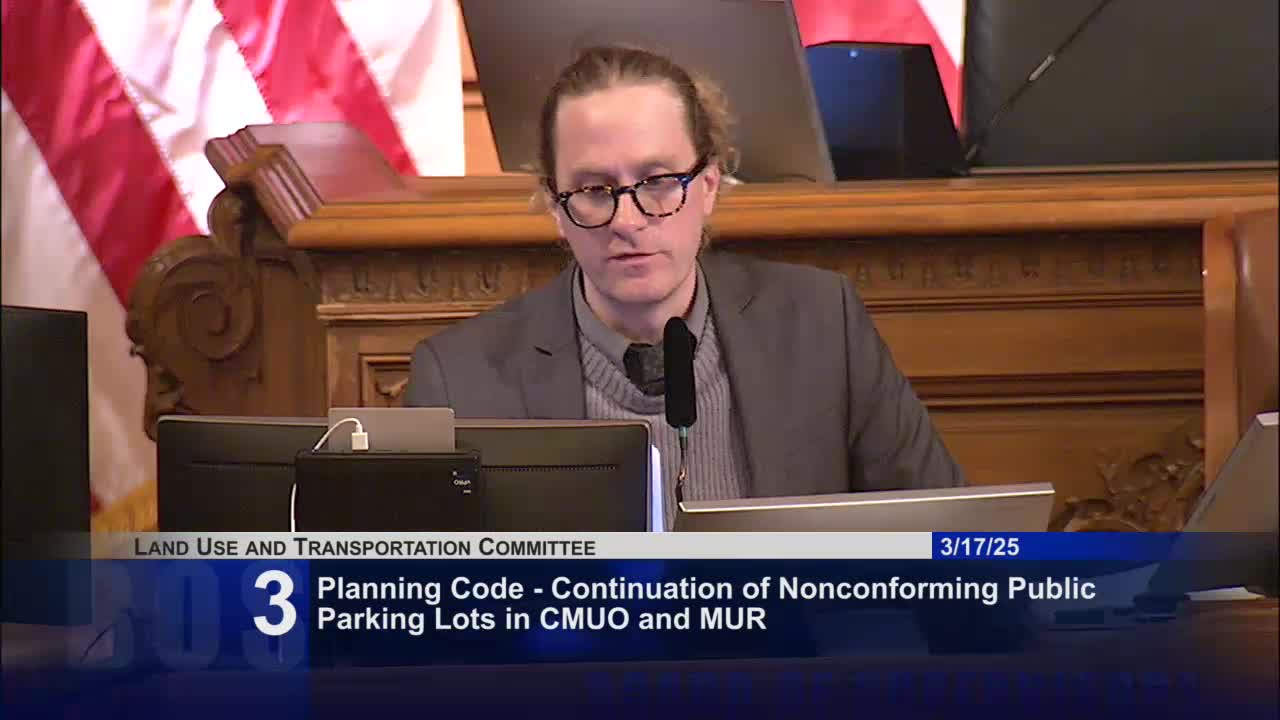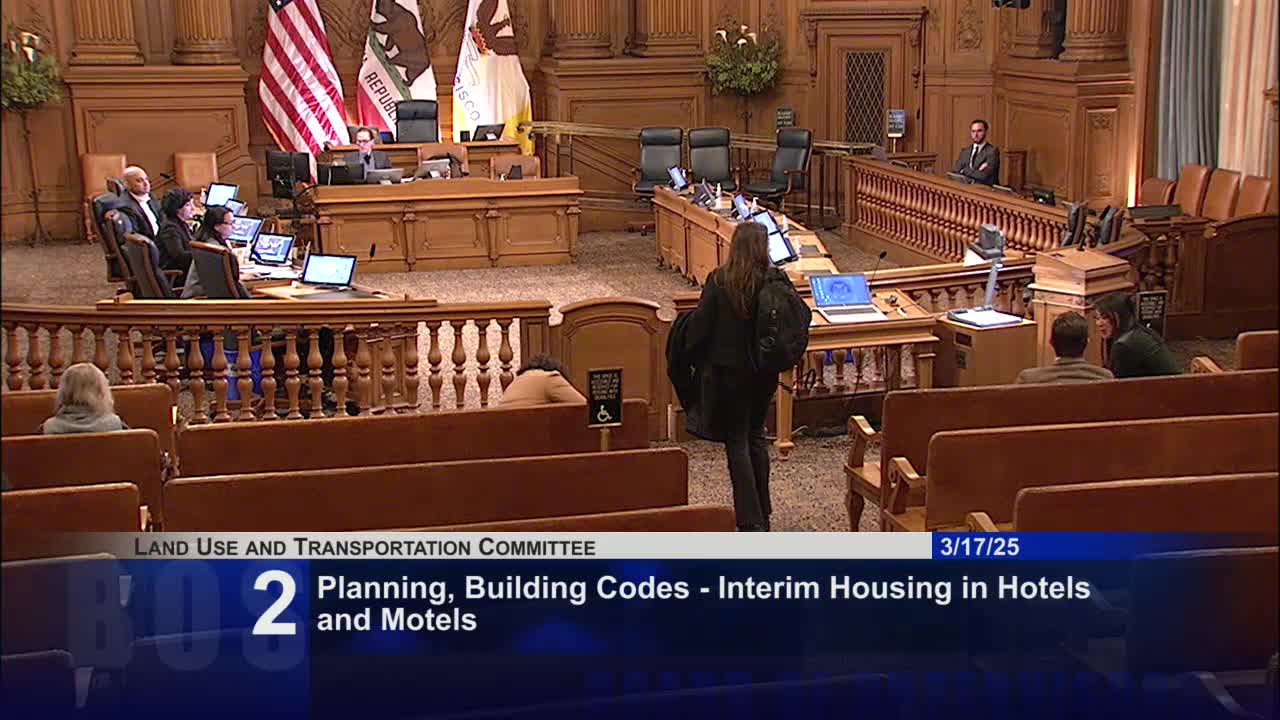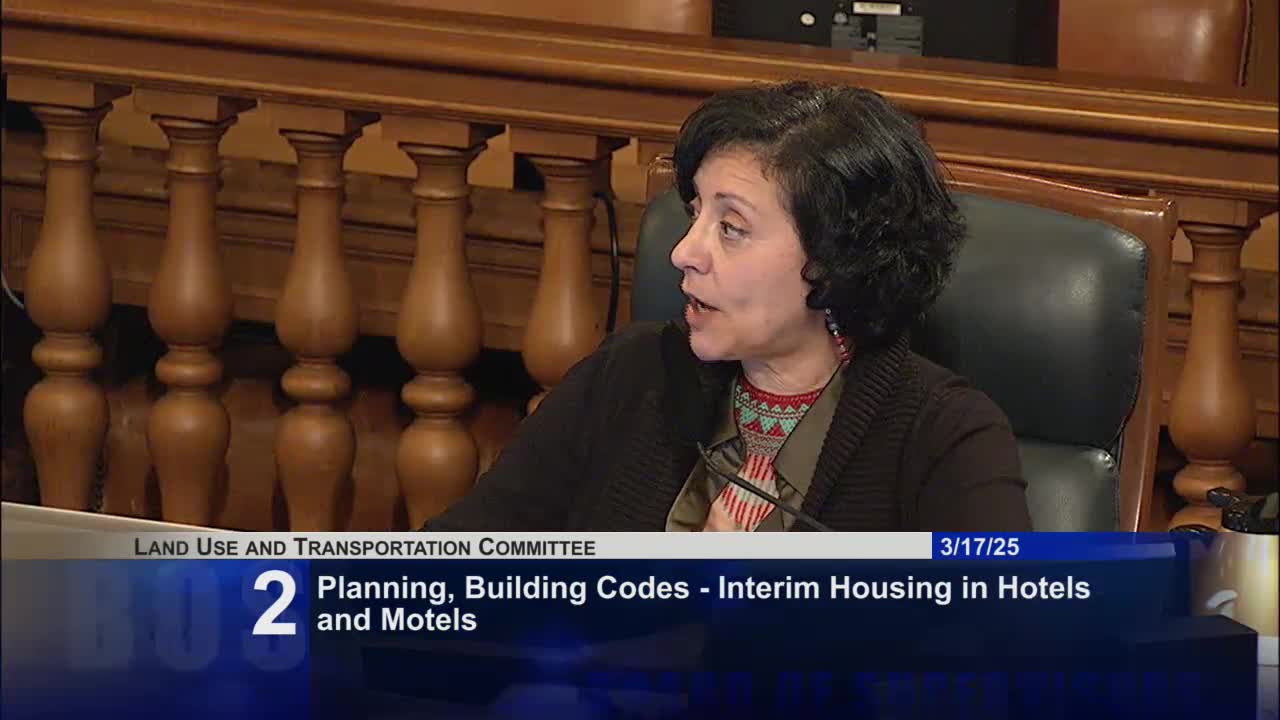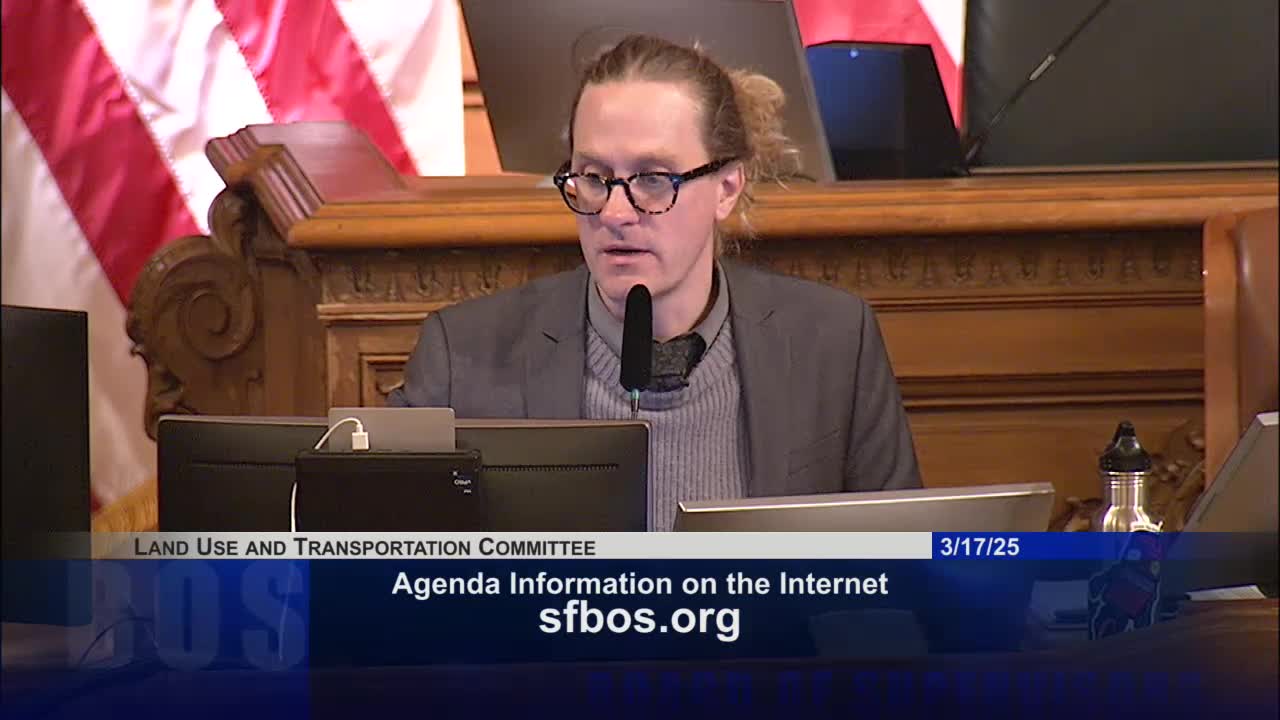Article not found
This article is no longer available. But don't worry—we've gathered other articles that discuss the same topic.

Committee forwards planning-code amendment tied to Hotel de Arts settlement

Committee backs extension allowing nonconforming Central SoMa parking lots to operate through 2026

Committee narrows interim-housing ordinance to specific hotels, forwards amended and duplicate files

